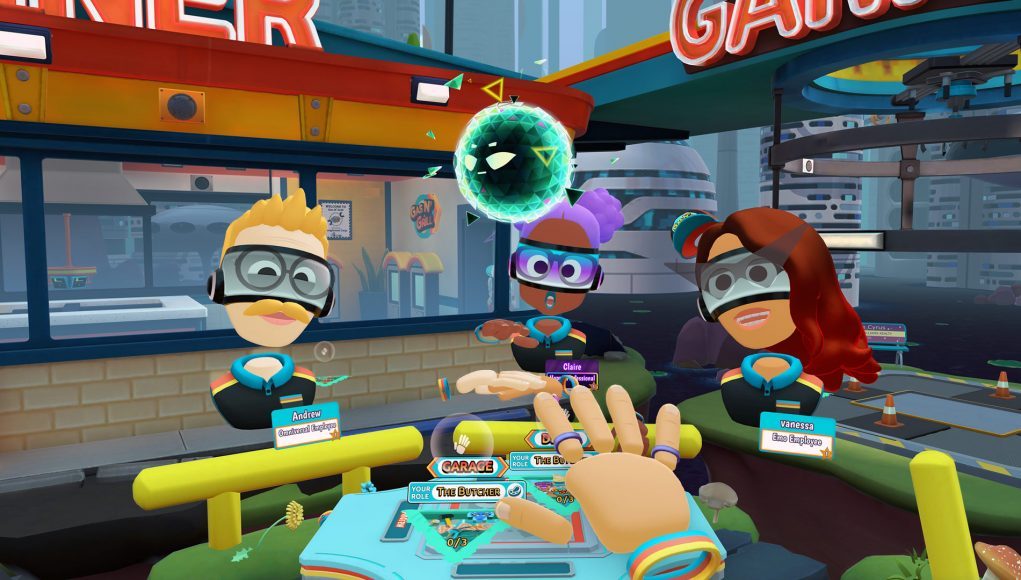Owlchemy Labs has been a powerhouse of top-selling VR games, so when the Google-owned studio released Dimensional Double Shift in beta last year for free, it wasn’t immediately clear why the studio behind Job Simulator (2016) was making its first stride into freemium territory. With over 500,000 downloads now though, it’s evident they saw the writing on the wall: free-to-play on Quest is more lucrative than ever thanks to Quest 3S.
Like Job Simulator and its sequel Vacation Simulator (2019), Dimensional Double Shift tasks players with jobbing around a patently wacky universe, this time running a combination garage and diner station, where you and three other players can fix up both cars and grub for alien patrons.
There’s a little more under the hood than just being essentially a free-to-play multiplayer version of Job Simulator though. While Dimensional Double Shift replicates the sort of immersive and easy to pick up mechanics of the studio’s most successful titles, also being one of the first designed exclusively for hand-tracking, the launch of Quest 3S has seen a large influx of younger users, which undoubtedly has been a big driver.
And as it goes, younger gamers typically spend more time in social games, less money on premium purchases, and more on in-app purchases—meaning free-to-play games are seeing a big boost right now.
To boot, Dimensional Double Shift’s 500,000 download milestone follows a growing trend of veterans and indie studios alike hoping to strike it big with freemium titles, ostensibly aiming to replicate the viral success of Another Axiom’s breakout hit Gorilla Tag, which generated over $100 million in gross revenue last summer.
“We’re building a social-first platform, and these younger users are more likely to spend time with friends in multiplayer experiences and social hangout apps,” Meta’s Metaverse Content chief Samantha Ryan said last month. “They’re contributing to the rise of free-to-play titles—a pattern historically common on other platforms. We’re also seeing growth of younger users in Horizon Worlds.”
And Meta knows full well it needs a Gorilla Tag—or multiple Gorilla Tags—of its own on Horizon Worlds too. Meta recently announced a $50 million fund to incentivize the creation of new and improved content in Horizon Worlds, aiming to attract developers to build on the social platform what they might otherwise launch as self-contained apps, with the fund designed to pay out bonuses to creators of worlds that drive high visits, retention and in-app purchases.







